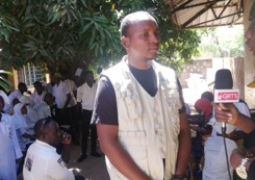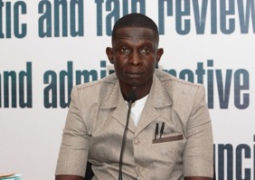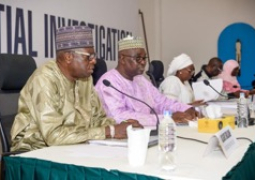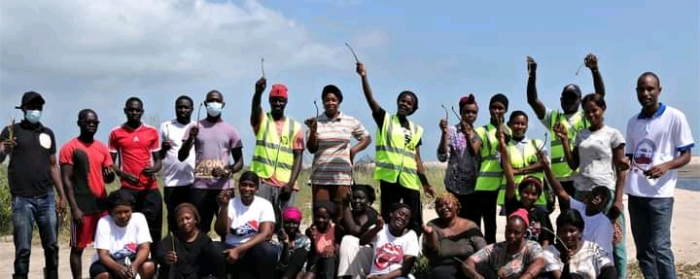
Alfusainey Gano, project manager for City Link Banjul-Ostend project explained that the 3-year project is funded by the European Union(EU) at an amount of 3.1 million Euros and is under Banjul City Council (BCC).
He said that the exercise is one of the project components(greening), adding that part of the overall project framework includestargeting five areas ranging from capacity building, Crab Island, waste management, greening of Banjul and health.
He noted that part of the greening includes the beach and planting coconut trees as well as making the city green in order to beautify it. “Banjul have been known of mangrove because it has been here for centuries but we are losing some of them. It is important to replant as much mangrove as possible, which is connected in making Banjul green and to promote bird watching and tourism,” he went on.
Mr. Gano continued that about 3, 000 coconut trees have been planted in Banjul and an extra 2, 500 is been procured to be planted at the Banjul beech. He said trees are also planted on the streets of Banjul, in order to make the city beautiful. He confirmed that the principal partner for the project is WABSA, who will ensure that the three-year project is successful.
Augustus Sanyang, a resident and leader of Ndangan community expressed delight at the planted mangroves, saying some of the mangroves are draining.
He reiterated that at Ndangan, they realized that a lot of mangroves are dying, adding that he really appreciates the project.
“It is very important to have this project coordinated in Banjul. We are surrounded by the river and we know that the most important plant around the river is mangrove. I am happy that members from Hamza Barrack joined us and I know they will serve as watchers on these planted mangroves,” he also said.
Amadou John, national coordinator for West Africa Bird Association thanked future proof Banjul, residents of Hamza barracks, Ndangan community, management committee, Banjul Youth Committee (BYC) and project coordinator for their great contribution.
“We started the project last year and have planted almost 5, 000 propagules. We are also targeting to plant the same number this year. We have planted 500 today and target to reach 5, 000,” he said.
He indicated that they will plant on side one and move to three in their subsequent plantings, affirming that without the replanting of the mangroves, Banjul could be affected by coastal erosion.
Read Other Articles In National News
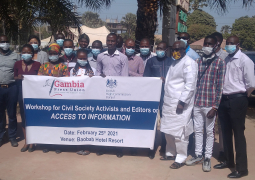
GPU exposes activists, editors to Access to Information, elections
Feb 26, 2021, 12:06 PM
